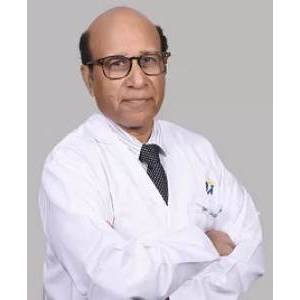Vascular surgery is a procedure used to treat issues and diseases related to the veins and arteries in the body. Vascular surgeons, specializing in this field, not only conduct surgeries but also offer medical advice to manage these diseases. These include changes in diet, lifestyle, and medication. Like every surgery, vascular surgery comes with its own sets of risks and complications. But in serious medical conditions, the benefits outweigh the risks.
What is Vascular Surgery?
Vascular diseases affect capillaries, veins, blood vessels, and arteries, affecting the transportation of blood from the different parts of the body. These diseases also extend to the vessels that carry white blood cells from the tissues to the blood.
Vascular surgery consists of the diagnosis, management, and surgical techniques used to treat vascular diseases. While surgery is an important treatment option, most specialists treat vascular diseases with medication and lifestyle modification.
Who Qualifies for Vascular Surgery?
People with the following conditions are eligible for vascular surgery depending on the advice given by the vascular specialist:
- Deep vein thrombosis
- Aneurysm
- Spider veins
- Varicose veins
- Peripheral artery disease
- Carotid artery disease
- Thoracic outlet syndrome
- Injury to the blood vessels after a trauma
Why is Vascular Surgery done?
Even though most vascular surgeons opt for medication and non-surgical treatments, grim health conditions may require surgical intervention. Depending on the cause and severity of the problem, surgeons perform vascular surgeries to help relieve pain and improve mobility. In some cases, vascular surgery may even avoid the risk of developing consequential conditions, such as a heart attack or a stroke.
Before your surgeon suggests any surgery, the surgeon will conduct a physical examination and take your medical history to understand the condition better. To better understand whether a surgery is required or not, consult a doctor. Your doctor may recommend any one of the following tests to understand the blood flow in your arteries:
- Angiogram
- Ultrasound scan
- Arteriogram
- Computed Tomography Scan (CT Scan)
- Magnetic Resonance Imaging (MRI)
- Duplex Ultrasound Scanning
- Lymphangiography
- Lymphoscintigraphy
- Segmental Pressure Test
- Ankle - Brachial Index Test
- Plethysmography
Types of Vascular Surgery
While there are several vascular diseases, surgeons primarily opt for two types of surgery.
- Open surgery: In this surgery, the surgeon makes an incision using a scalpel to get a direct view of the problem area.
- Endovascular surgery: This is a type of minimally invasive procedure where a thin and flexible tube filled with a medication, called a catheter, is inserted through the skin and into the blood vessel.
In complex cases, your surgeon may go for a combination of open surgery and a minimally invasive procedure to treat the patient.
Risks and complications associated with Vascular Surgery
The following people may be at a higher risk of developing complications after vascular surgery for people who:
- smoke,
- are overweight or obese,
- have a chronic lung disease, or
- have a kidney problem
The following is the list of complications that may arise from vascular surgery.
- Infection
- Blocked grafts
- Bleeding
- Leg swelling
Request an appointment at Apollo Spectra Hospitals, Sector 8, Gurugram
Call: 18605002244
Conclusion
Vascular diseases are a group of diseases that affect the arteries, blood vessels, and capillaries. Leaving it untreated can lead to issues and complications. While most doctors go for non-surgical approaches, such as diet changes and medications, grave cases of vascular disease warrant surgical procedures. Open surgery or endovascular surgery, or a combination of both, is performed depending on the severity of the condition. Vascular surgery comes with a set of complications such as infection and bleeding. Doing vascular surgery is far more beneficial as it lowers the risk of developing strokes or heart attacks and improves a patient's mobility and overall health.
Depending on the severity of the condition and surgery, the doctor may keep the patient in the hospital for 24 hours or more until the doctor deems it fit to release the patient.
Today, vascular diseases have become rampant, and anyone can develop them. But it has been seen that patients with a family history of vascular diseases, high cholesterol, pregnant women, and hypertension have a higher risk of developing vascular diseases. Most people leading a sedentary lifestyle, obese, and prone to smoking are at risk of developing vascular diseases.
Refrain from any physical exercise a few days after the surgery. Speak to your doctor once before you start exercising.
Our Doctors
DR. JAISOM CHOPRA
MBBS, MS, FRCS...
| Experience | : | 38 Years Experience |
|---|---|---|
| Speciality | : | Vascular Surgery... | Location | : | Sector 8 |
| Timings | : | Every Third Friday -... |
NOTICE BOARD
CONTACT US
CONTACT US
 Book Appointment
Book Appointment



.svg)
.svg)
.svg)
.svg)








